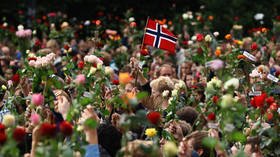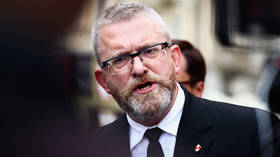Ten years on from Anders Breivik, the very complaints that drove the mass killer have gone mainstream across much of Scandinavia

Although discussion on immigration and multiculturalism remains taboo in Norway, there’s a vigorous debate about these issues in Sweden and Denmark. That’s healthy – and Norwegians should put raw emotion aside and embrace that.
As Norway pauses to reflect today 10 years after Anders Behring Breivik’s July 22 terrorist rampage that left 77 people dead, it is hard to deny that the very complaints that drove the killer have not disappeared elsewhere in liberal Scandinavia. In fact, they have gone mainstream.
Fantasist Breivik, who in his own imaginings was Justiciar Knight Commander of the Knights Templar Europe, insisted on trying to play the Norwegian legal system by pleading guilty and accepting accountability for his horrific actions, just so he could deliver his rambling statement outlining his reasons for bombing the Norwegian Prime Minister’s office, killing eight, before setting off to murder 69 victims, many in their teens, at a summer camp on the island of Utøya for members of AUF, the youth division of the Norwegian Labour Party.
At the time, the killer’s claims of the existence of a shady pan-European network, along with multiple accomplices and further planned attacks, shocked a nation. But as investigations continued, his far-right fairytale unravelled to reveal that he acted alone, despite claiming to have committed the atrocities on behalf of all Europeans.
Breivik’s totally bonkers online 1,500-page manifesto, launched to coincide with the attacks, on closer inspection turned out to be a rehash of Unabomber Ted Kaczynski’s earlier work, with added insights into his personal training regime, steroid abuse, preparations for the attack and central role in an apparently Europe-wide resistance against ‘Islamisation’. In hindsight, there was nothing terribly unique about the document. It was garden-variety, lone-wolf nutter BS.
It was Breivik’s extraordinary actions that set him apart from his more relatively ordinary, if unhinged, beliefs.
Also on rt.com 10 years post-Breivik: Norway’s still dealing with aftermath of its deadliest massacre since World War 2 (PHOTOS)Because his actions were evil and that’s why he’s currently serving a 21-year prison sentence. Inextricably linking those actions to some of the political ideas found in his hotch-potch manifesto, however, and allowing him speaking time in a purpose-built courtroom – his very own stage – to let him expound on his thoughts, has created a problem for Norway in addressing the issues that Breivik raised – in short, immigration and multiculturalism.
Neighbouring Denmark and Sweden, however, have no such qualms. Both those nations are openly discussing these issues in ways that were unthinkable 10 years ago and, while debate is fierce on both sides, at least people can talk about these matters without one side being automatically excluded from the discussion for having been branded far-right extremists intent on bombing and slaughtering people into submission.
In Norway, far-right equals Breivik equals bombings and slaughter. So those on the Left – ever-sensitive to the fact that AUF is a Labour youth wing – can shut down the conversation by always linking the arguments from the Right to the man who carried out the nation’s worst-ever atrocity.
That makes it impossible to have a balanced debate on immigration and multiculturalism and subsequently more difficult for the Norwegians to move on with their healing, which even now 10 years down the line, still has a long way to go.
Äsne Seierstad is a Norwegian journalist who wrote One of Us, a book about the Utøya massacre on which director Paul Greengrass based his film dramatisation of the events, 22 July, but in a follow-up piece published today, asking why the country has spent a decade failing to address what caused the attack, she unknowingly supplies the answer herself.
Also on rt.com 1st serving UK officer jailed for terrorism offence over membership of banned neo-Nazi groupIn promoting the idea that the only answer to the right-wing political views shared by Breivik is the wholesale adoption of the liberal left ideology she holds so dear, it’s clear what the message is: those with views different to hers are racists, murderers and neo-Nazis, all no better than Breivik.
While the Left understandably continue to mourn their dead – “We lost some of our finest young people and the Labour Party’s greatest talents that day,” says Jens Stoltenberg, who was then Norwegian PM – until they can find it in themselves to tolerate opposing views without having a visceral emotional reaction that prevents rational debate, then any chance to resolve these divisive social issues will continue to be haunted by the spectre of Anders Behring Breivik.
And one thing is certain, he does not deserve the attention.
Think your friends would be interested? Share this story!
The statements, views and opinions expressed in this column are solely those of the author and do not necessarily represent those of RT.













